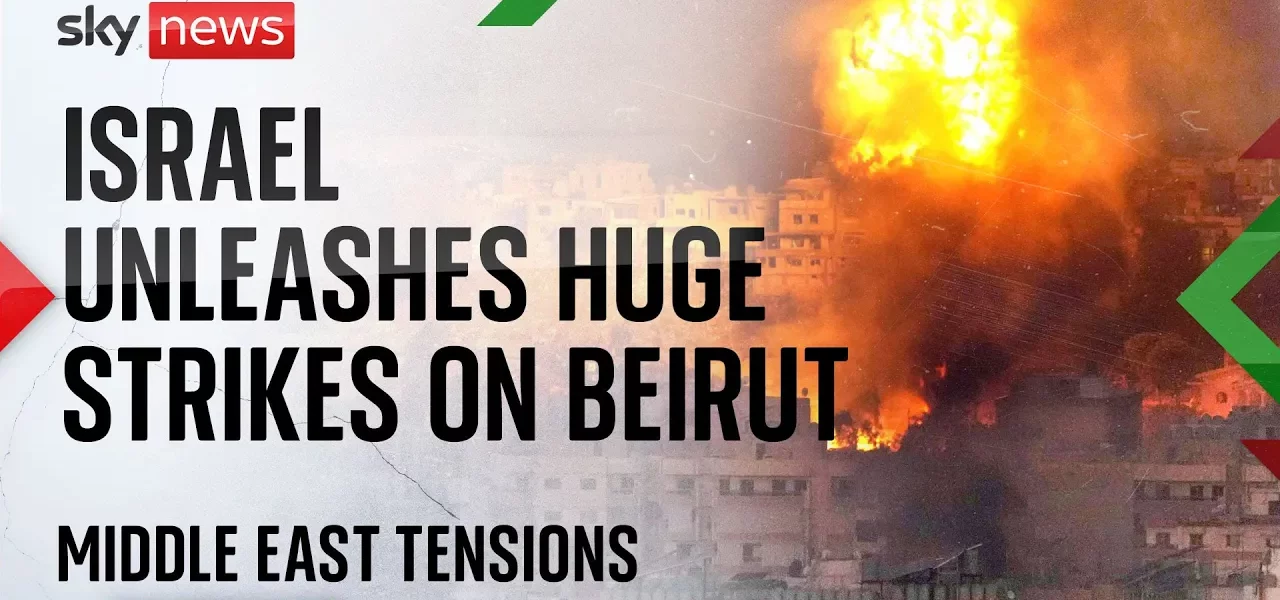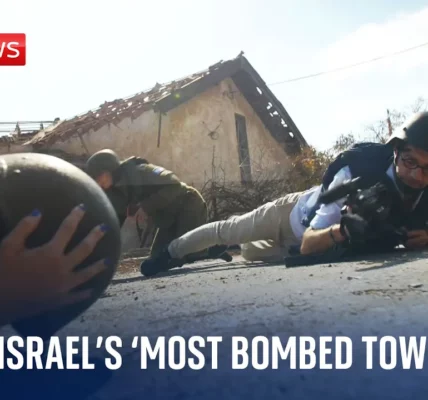Escalation in Beirut: Israeli Airstrikes Target Hezbollah Command Center

This article explores the recent surge in violence in Beirut, following Israeli airstrikes aimed at Hezbollah’s central command. We delve into the implications of this military action, the response from Lebanese authorities, and what it means for the ongoing conflict in the region.
Introduction
In a shocking turn of events, the fragile peace in Lebanon was shattered by a series of powerful explosions in Beirut. The Israeli Defense Forces (IDF) launched a significant attack on Hezbollah’s central command headquarters, situated in the densely populated southern suburbs of the city. The operation has raised concerns about civilian casualties and the broader implications for the region’s stability. This article examines the details of the airstrikes, the responses from various stakeholders, and the potential future of the conflict.
The Attack on Hezbollah’s Command Center
The Israeli military operation involved the use of overwhelming firepower, targeting Hezbollah’s command headquarters embedded within residential buildings in a district known as Dahia. Reports indicate that the strikes resulted in the destruction of four to six apartment blocks, leading to extensive collateral damage.
Details of the Strikes
- Location: Southern suburbs of Beirut, particularly in Dahia.
- Type of Munitions: 2,000 bunker-busting bombs were deployed.
- Casualty Estimates: Local authorities anticipate high casualty numbers due to the dense population in the area.
Visual Impact
Images from the scene depicted a landscape of devastation, with debris strewn across the streets and residents frantically searching for loved ones amidst the rubble. The sight of twisted metal and concrete slabs painted a grim picture of the aftermath.
Reactions to the Airstrikes
Reactions from various parties have been swift and varied. Israeli officials have justified the strikes as a necessary action against a terror organization threatening their national security.
Israeli Government’s Position
Israeli Prime Minister Benjamin Netanyahu defended the military operation during a speech at the UN General Assembly, emphasizing that Israel would continue its campaign against Hezbollah until total victory is achieved.
Lebanese Authorities’ Response
Lebanese officials described the attacks as “complete decimation,” expressing urgent concern for the safety of civilians in the area. The government has called for international support in addressing the humanitarian crisis arising from the conflict.
The Broader Implications for the Region
The escalation of military actions in Beirut not only affects Lebanon but also has significant implications for regional stability. The ongoing conflict between Israel and Hezbollah has deep historical roots, and the recent airstrikes could signal a new phase of violence.
Potential for Further Conflict
- Increased hostilities may lead to a wider regional conflict.
- Heightened tensions could provoke responses from other militant groups.
- Potential for civilian unrest within Lebanon as the government grapples with the fallout.
International Reactions
The international community has expressed concern over the escalating violence. Diplomatic channels are being explored to de-escalate the situation, but the path forward remains uncertain.
Conclusion
The recent Israeli airstrikes in Beirut represent a significant escalation in the ongoing conflict with Hezbollah, invoking fears of further violence and instability in the region. As casualties mount and the humanitarian situation worsens, the need for a comprehensive diplomatic solution becomes increasingly urgent. The international community must engage proactively to prevent further deterioration of the situation. For more information and updates on this evolving story, stay tuned to our coverage.
If you wish to explore related topics, check out our articles on the Israeli-Palestinian conflict and Middle East geopolitics.
“`




